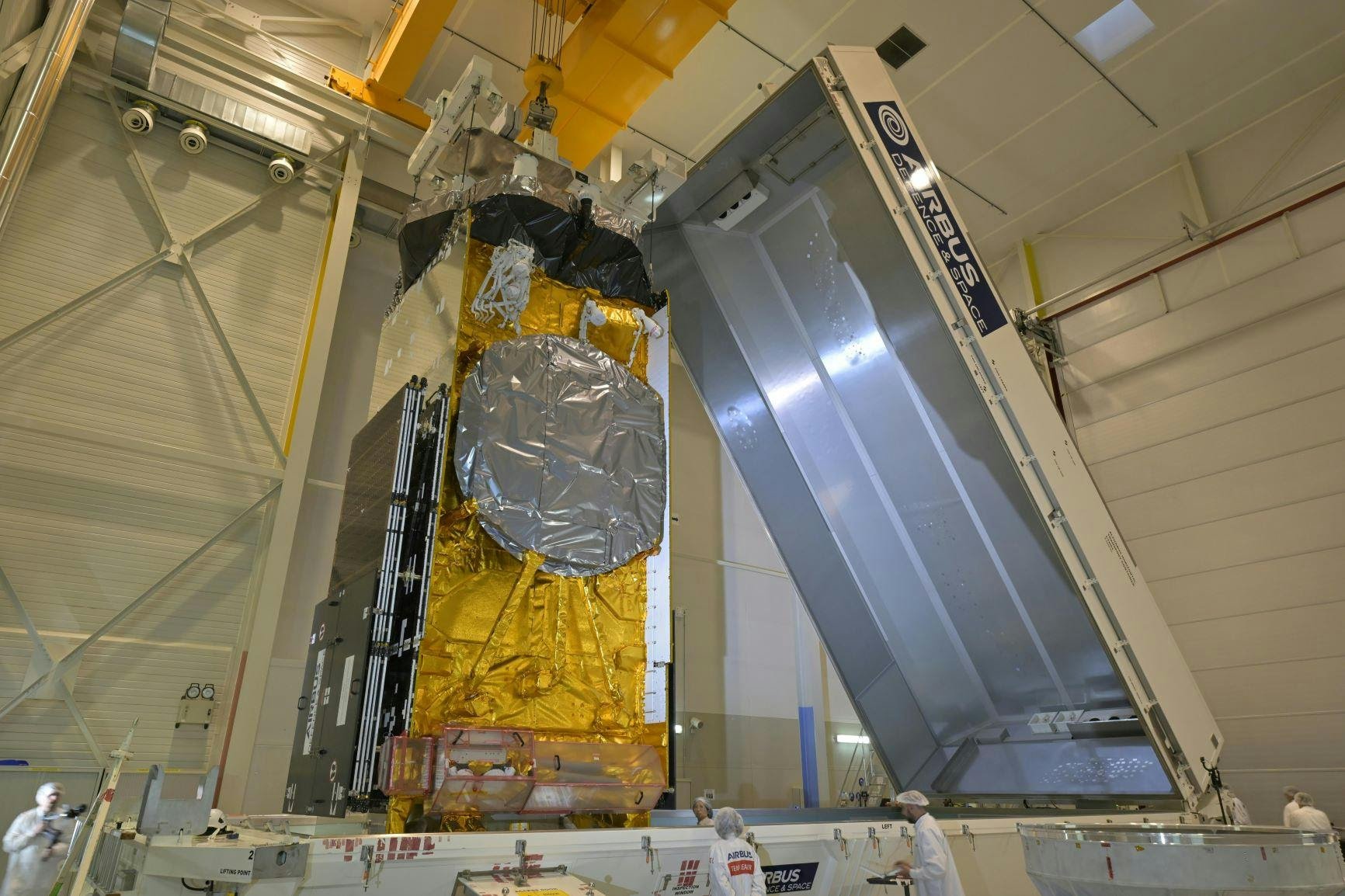Airbus-built EUTELSAT 36D Satellite Shipped Inside the BelugaST to its Launch Site
Eutelsat 36D satellite being packed into its transport container Copyright: Airbus
The Airbus-built EUTELSAT 36D geostationary telecommunications satellite has been shipped from Toulouse, France to Sanford, Florida, USA, on board an Airbus BelugaST (A300-600ST). Its next step is the Kennedy Space Center, in Florida, where it will be launched into orbit aboard a SpaceX Falcon 9 later this month. With the advent of the new BelugaXL, based on the larger A330-200 platform, the A300-600 based BelugaST fleet is now fully available for outsized freight transport services globally.
EUTELSAT 36D is based on the latest generation Eurostar Neo geostationary telecommunications satellite and will provide TV broadcasting (DTH) and government services over Africa, Europe and eastern countries and has a planned lifetime of more than 15 years.
Philippe Pham, Head of Telecommunications & Navigation Systems at Airbus, said: “EUTELSAT 36D is the latest milestone of our longstanding partnership with Eutelsat stretching back more than 30 years. It is the 22nd geo satellite we have built for them and will provide extended capacity over Africa and Eurasia.”
With 70 physical Ku-band transponders, the all-electric EUTELSAT 36D will assure all the main legacy missions of EUTELSAT 36B, with enhancements to coverage and performance.
It is the fourth Eurostar Neo in orbit. Eurostar Neo satellites combine increased payload capacity and more efficient power and thermal control systems with reduced production time and optimised costs as part of a fully digitalised production process. EUTELSAT 36D combines 18 kW of electric power with a reduced launch mass of approximately five metric tonnes, enabled by Airbus’ EOR (Electric Orbit Raising) capability, reinforcing Airbus’ position as the world leader in electric propulsion.
The Eurostar Neo family of Airbus telecommunications satellites is based on a next-generation platform and technologies, developed with the support of the European Space Agency (ESA), and others, including the Centre National d’Etudes Spatiales (CNES) and the UK Space Agency (UKSA).
This is the third time that a Beluga transport aircraft is delivering an Airbus geostationary satellite to the Kennedy Space Center in Florida. Previous missions include HOTBIRD 13G on 17 October 2022 and Inmarsat 6-F2 on 30 January 2023. Airbus' ability to offer an autonomous European solution is demonstrated by the transport of the Airbus satellites on the unique Beluga aircraft, a true example of pan-Airbus synergies.
